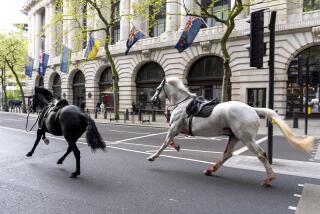Australia’s friendly marsupial Quokka threatened with extinction
Quokkas, the small marsupials whose smiles have launched a torrent of selfies on social media in Australia, are at risk of disappearing from the Oceanic country owing to forest fires, predators and humandriven development.
The quokka, or Setonix brachyurus, is a nocturnal herbivore measuring little over 40 cm, has a grayishbrown coat, a long tail and an average life span of ten years, and is considered the tiniest version of the wallaby.
Found only in southwest Australia, this marsupial was also called “bangup,” “bandeuo”, and “Quaka” by the Noongar Aborigines.
This species, whose females produce just one offspring a year, is listed as vulnerable by the International Union for Conservation of Nature.
When he came across the quokka for the first time, Dutch explorer Willen de Vlamingh described it as “a kind of rat as big as a common cat”, prompting him to name the place he sighted them in as “Rottnest” (Dutch for rat’s nest).
The Rottnest Island, near the city of Perth, is the main habitat of these creatures where their numbers are estimated to be between 8,000 to 12,000.
The relative abundance of quokkas, with their ‘smiling’ faces and no fear of humans, in the region is a big pull for tourists, who clamor for selfies with them.
However, since European colonization in the late 18th century, the population of quokkas has fallen drastically to just around 4,000 currently.
Moreover, the February 2015 fire that devastated 98,000 hectares of forest in southwest Australia, pushed the quokkas in Northcliffe to the verge of extinction, points out WWFAustralia Species Conservation Manager Southwest Merril Halley.
She told EFE that before the fire there were around 500 quokkas, but that number was reduced to just 39 thereafter, according to latest studies.
She added the quokkas may have fled to surrounding areas of the fireaffected zone.
Unfortunately the forest fire separated quokka survivors from each other and confined them to smaller habitats with scarce vegetation on which to feed and where they are far more vulnerable to predator species including dingoes, foxes and cats.
Inroads by humans have also taken a toll on this friendly species, who have lost habitat to agricultural development, treefelling, and urbanization, among others.
Halley said greater genetic diversity of the mainland quokkas makes them very important, and their disappearance could have adverse impacts on the ecosystem.
According to the WWF, quokka numbers in the fireaffected region will need around 15 years to recover.







